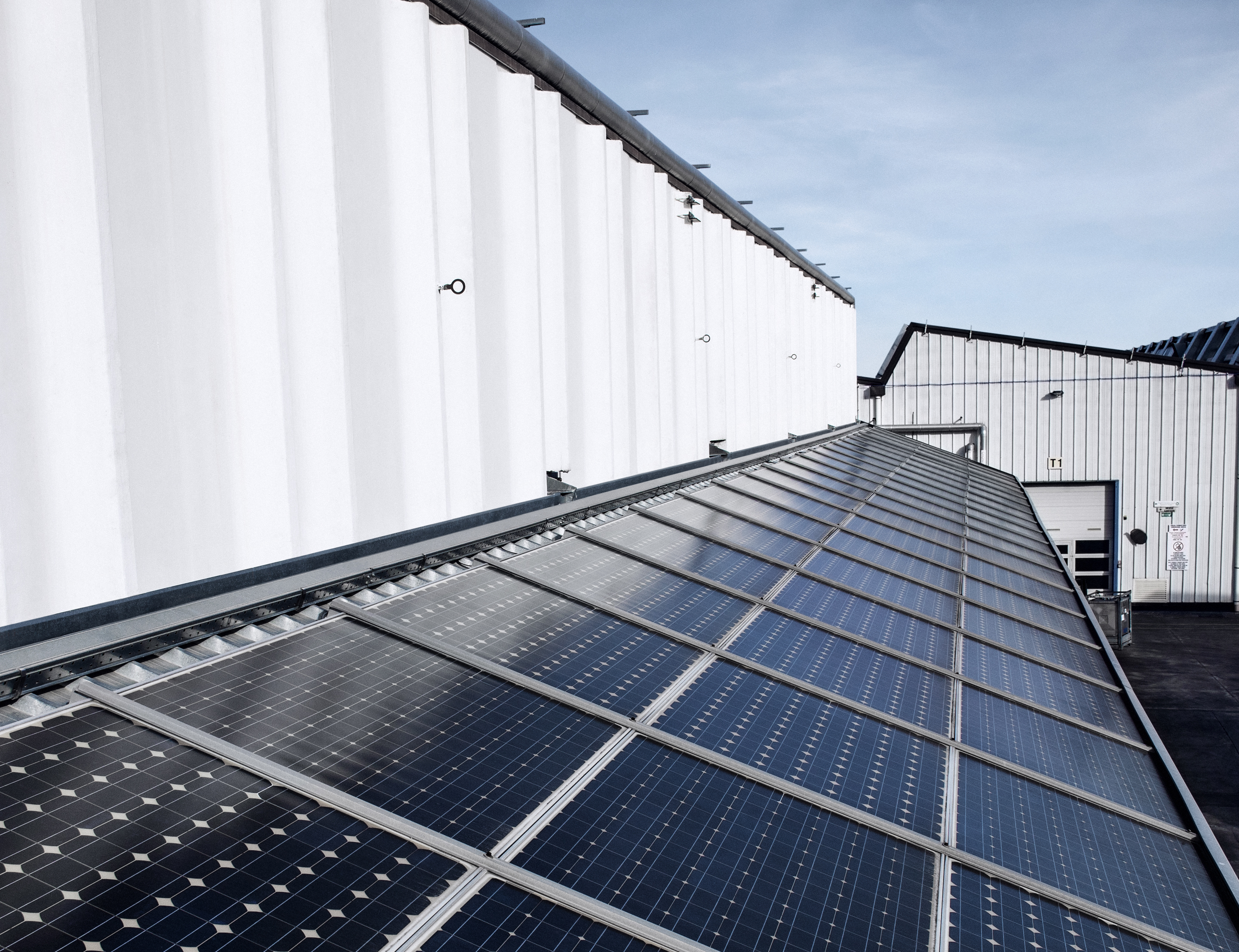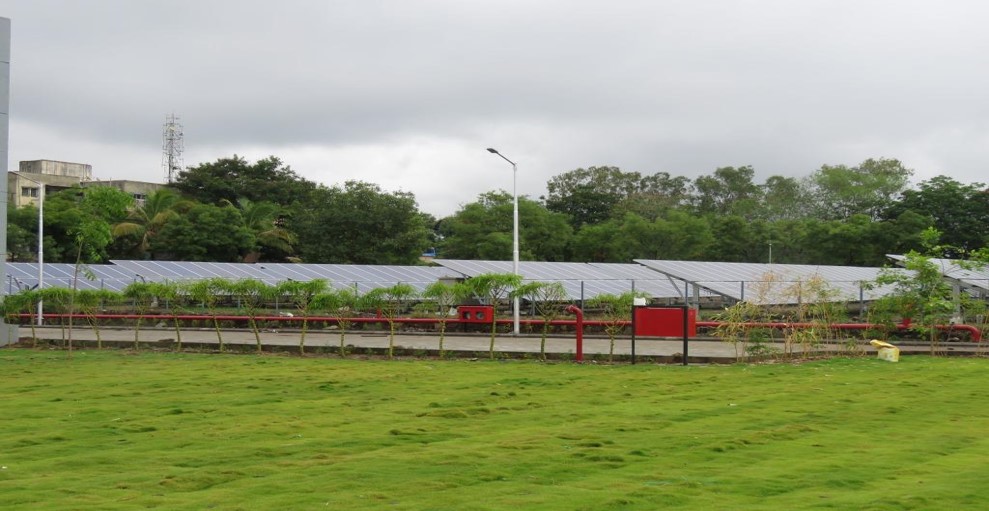Environmental and climate protection must be considered holistically if it is to succeed. As a company, we therefore take responsibility – along the entire value chain. ELANTAS, an ALTANA division, impressively demonstrates what this means and what measures we are implementing. A visit to Italy and India.
It is 10 a.m. The sun is rising in a cloudless blue sky. “Perfect weather for harvesting,” says Francesco, Di Addezio, site manager at ELANTAS in Ascoli Piceno, Italy, with a smile. Harvesting? At a chemical production site? A glance out of the window makes it clear. It's all about solar energy. Almost the entire available space at the site in Ascoli Piceno is covered with solar panels. A total of 2,457 modules have been installed.
The first solar panels were installed in 2009. And last year, the capacity was significantly expanded once again by doubling the number of modules installed. “The new solar panels alone generate around additional 1,300 MWh (megawatt hour) of green electricity per year. That, together with the old plant, enables us to cover more than 40 percent of site power demand with renewable energy,” explains Francesco Di Addezio. “In fact, in sunny months, we produce so much energy that we have decided to shut down our combined heat and power generation (CHP) from gas during daylight to make the best possible use of the renewable energy, achieving the saving up to 400 tons of CO2 per year.”
And Ascoli Piceno is just one example of three sites, ELANTAs runs in Italy. Collecchio covers 48 percent and Quattordio covers 13 percent of site power demand with renewable energy from own production. The rest is purchased from green electricity producers, mainly local, so that the entire electricity consumption at the site is covered by renewable sources. All sites in the ALTANA Group worldwide obtain electricity from renewable sources.

Shaping production processes
ELANTAS in India is going one step further. “The currently installed solar modules in Pimpri enable us to produce 340 MWh/y. Additional solar modules with a capacity of 205 KWp (kilowatt peak) are foreseen in Ankleshwar in 2025. Furthermore, we are currently in the process for a biomass plant installation to switch the facility from fossil to bio-source,” says Jagadish Bapat, Head of Sustainability, Excellence & Quality Assurance at ELANTAS in India.
The ALTANA Group also works in partnership with its customers along the entire value chain. Together, they develop product innovations that contribute to the five sustainability categories for ALTANA products: “Climate Protection,” “Human and Environmental Wellbeing,” “Alternative Feedstock,” “Resource Efficiency,” and “Circular Economy.” This involves, for example, the use of renewable raw materials or the sustainable impact of product solutions.


Product innovations for a sustainable future
An example of products with a share of renewable raw materials comes from Italy. “ELANTAS already has in its portfolio epoxy-based systems with a biobased content of 30 to 50 percent to produce composite materials. These are used, for example, in the marine industry to produce hulls, decks, and superstructures,” said Dr. Davide Malinverno former R&D Manager Engineering Materials (now Technical Sales Manager Special Coatings) at ELANTAS. ”Our goal is to significantly increase the proportion of renewable raw materials. We are also researching on the development of reversible sealing materials. With these systems, it will be possible to disassemble parts without losing quality, allowing the product to be reused.”
Increasing the proportion of bio-based materials is only part of the solution. To improve sustainability, the life of products must also be extended to conserve renewable resources for longer. Products from ELANTAS in India, among others, are making an important contribution to this. These are produced locally and are mainly used in the growth market of India – for example, in solar and wind power plants. “Our products help ensure that even the largest offshore wind turbines can reliably generate energy from renewable sources for decades, even at high voltages,” says Jagadish Bapat. “And without our innovative solutions, the rapid advances in electromobility would not be possible.”
The examples from ELANTAS in India and Italy impressively illustrate how a holistic approach contributes to taking responsibility and to drive sustainability along the entire value chain.